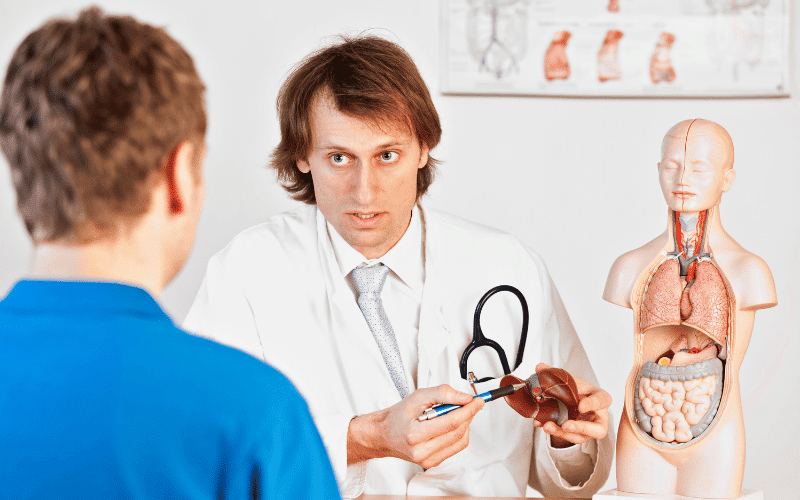Frequently Asked Questions (FAQs) About of Liver Cancer

1. What is the survival rate for liver cancer?
The survival rate for liver cancer varies depending on the stage at diagnosis, the type of cancer, and the patient’s overall health. Early detection and treatment are crucial for improving survival rates. The 5-year survival rate for localized liver cancer (cancer that has not spread beyond the liver) is around 33%. However, the survival rate drops significantly for advanced stages, with the overall 5-year survival rate for liver cancer being approximately 18%.
2. Can liver cancer be cured?
The chances of curing liver cancer depend on various factors, including the stage at diagnosis, the type of cancer, the size and location of the tumor, and the patient’s overall health. Early-stage liver cancer can potentially be cured through surgical removal of the tumor or liver transplantation. However, the prognosis for advanced liver cancer is generally poor, and treatment is often focused on managing symptoms and improving the patient’s quality of life.
3. What are the risk factors for liver cancer?
Some common risk factors for liver cancer include chronic hepatitis B or C infection, cirrhosis, excessive alcohol consumption, obesity, type 2 diabetes, exposure to aflatoxins (toxic substances produced by certain molds), and a family history of liver cancer.
4. How can I reduce my risk of developing liver cancer?
To reduce your risk of developing liver cancer, you can take the following steps: get vaccinated against hepatitis B, practice safe sex and avoid sharing needles to reduce the risk of hepatitis C infection, limit alcohol consumption, maintain a healthy weight, manage diabetes, and minimize exposure to aflatoxins by consuming a balanced diet and properly storing food.
5. Can liver cancer be prevented?
While it may not be possible to completely prevent liver cancer, you can significantly reduce your risk by making lifestyle changes and addressing risk factors such as hepatitis infection, alcohol consumption, obesity, and diabetes. Regular medical check-ups and monitoring for those with known risk factors can also help with early detection and treatment.
6. How is liver cancer diagnosed?
Liver cancer is typically diagnosed through a combination of blood tests, imaging studies, and sometimes a biopsy. Blood tests can help determine liver function and detect specific tumor markers associated with liver cancer. Imaging studies such as ultrasounds, CT scans, and MRIs can provide detailed images of the liver and reveal the presence of a tumor or other abnormalities. In some cases, a liver biopsy may be necessary to confirm the diagnosis, where a small sample of liver tissue is collected and examined under a microscope for cancerous cells.
Conclusion: Recognizing the Early Signs of Liver Cancer for Timely Intervention
In summary, being aware of the 10 early signs of liver cancer is crucial for prompt diagnosis and effective treatment. By understanding and identifying these symptoms, you can take proactive measures to seek medical attention and potentially save your life or that of a loved one. Early intervention and appropriate treatment can significantly improve prognosis and overall survival rates for liver cancer patients. Always remember that consulting a healthcare professional for further evaluation and guidance is essential if you experience any of these symptoms or are concerned about your risk factors for liver cancer.